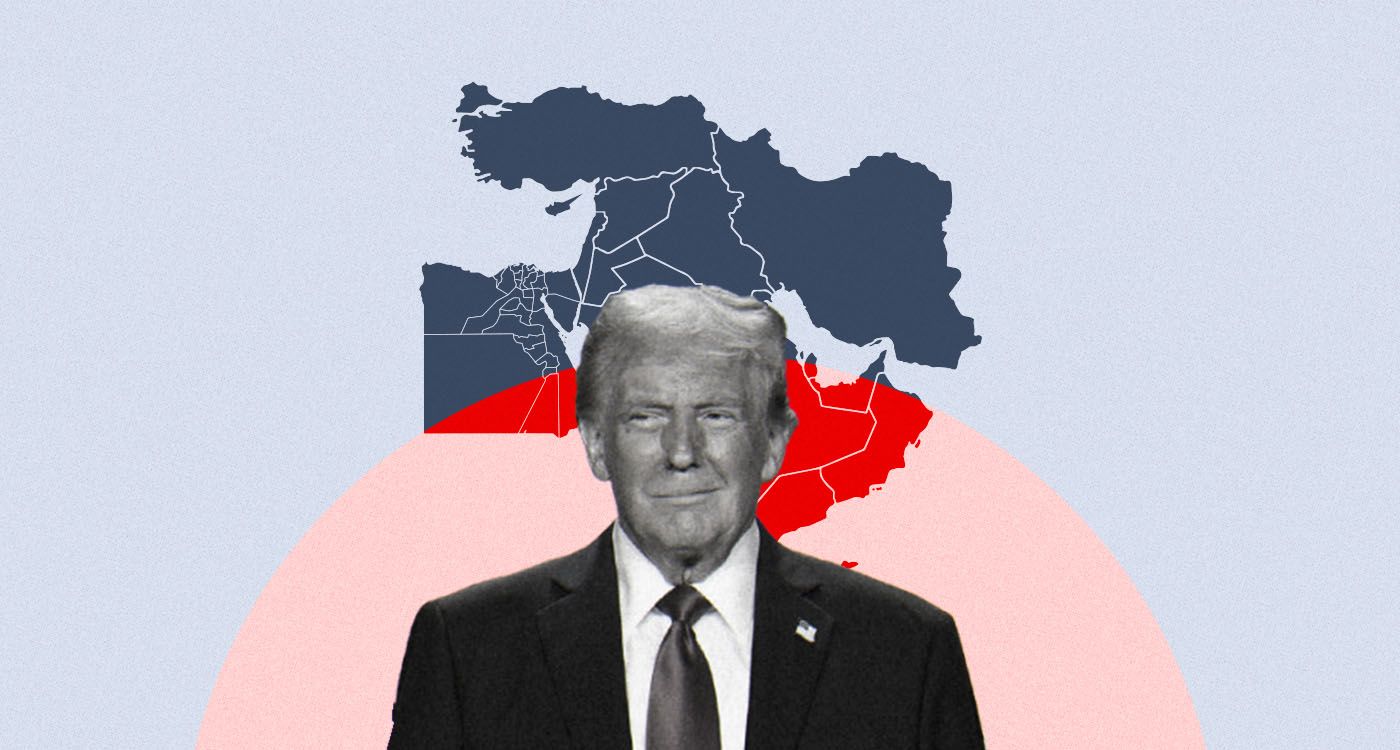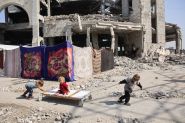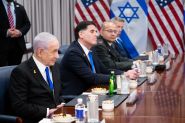- Home
- Middle East
- Trump’s Regional Peace Play: A New Pax Americana?

©This is Beirut
Donald Trump’s whirlwind tour of Saudi Arabia, Qatar and the UAE was far more than a ceremonial diplomatic visit. Grounded in deep strategic, political and economic stakes, it marked a decisive attempt to recast the American role in a region long scarred by conflict and fractured alliances.
Arriving with a regional peace blueprint in hand, Trump used the trip as a springboard to translate vision into action. In just three days, the visit shifted dynamics across the Middle East—and potentially, the globe. “The world will be better in a matter of weeks,” he proclaimed at its conclusion. It was a bold promise, but one he seemed intent on backing with substance: trillions in investment deals, a call for lasting peace and what he dubbed a revitalized Pax Americana launched from Riyadh.
A New Chapter with Syria
In a striking development, Trump met directly with Syrian President Ahmad el-Chareh, the first such encounter between US and Syrian leaders in 25 years. At Crown Prince Mohammed bin Salman’s request, Trump lifted US sanctions on Syria, opening the door for normalization and the country's reintegration into the regional fold.
Chareh, for his part, signaled willingness to align with Washington’s framework. He was urged to join the Abraham Accords and to sever ties with Palestinian factions designated as terrorist organizations by the US. Washington praised his early efforts: curbing armed Palestinian activity, halting attacks on Israel from Syrian territory, expelling Iran’s Revolutionary Guard, dismantling Hezbollah’s infrastructure and securing Syria’s border with Lebanon to disrupt regional arms smuggling routes.
Still, the path ahead remains delicate. Talks are ongoing about the dismantling of foreign-led armed groups involved in the 2022 coup attempt. Yet, Chareh’s steps thus far have drawn acknowledgment from Washington, especially as they appear to rebalance Syria away from Iran’s orbit.
Lebanon at a Crossroads
Lebanon, by contrast, barely figured in the official conversations. According to diplomatic sources, its failure to reassert state control over weapons and enact essential reforms excluded it from Trump’s regional vision.
Still, Lebanon received a pointed message. In a personal note to President Joseph Aoun, Trump wrote, “Lebanon has been a victim of Iran and Hezbollah. I understand the new political leadership is respected and committed to progress. The United States is ready to assist Lebanon in building a future based on economic development and peace with its neighbors.”
Trump made it clear: Lebanon has a rare opportunity to steer toward stability, if it seizes the moment. He emphasized that Aoun has a chance to lead Lebanon toward full statehood, unshackled from Hezbollah’s influence. But that future depends on aligning with the region’s new order rather than standing apart from it.
Diplomatic voices echoed this view, warning Lebanon not to fall into regional power games. They stressed the need to return to Lebanon’s doctrine of “positive neutrality,” and avoid becoming a pawn—or fortress—for obstructionist axes. The country, they noted, has already borne a heavy cost for its historic defense of the Palestinian cause.
Iran, Iraq and a Message with Consequences
Trump’s message to Tehran was unequivocal: Iran must never obtain nuclear weapons and must stop funding proxy wars across the region. “We dealt a significant blow to the Houthis for targeting ships in the Red Sea,” Trump declared. “We will do everything possible to secure the release of American hostages.”
The US stance prompted a notable shift. Iran ordered the Houthis to cease attacks on American ships and pledged a new posture: no nuclear arms, a cap on uranium enrichment for civilian use and permission for international oversight of uranium transfers abroad. In return, Iran demanded the lifting of US economic sanctions.
Iraq amplified the US message. Influential Shia clerics like Ali al-Sistani and Muqtada al-Sadr called for the state to reclaim its monopoly on arms. Chareh had already imposed a weapons ban on all non-state groups, including Palestinian factions, reinforcing this wider regional shift toward centralized authority.
The lingering question remains: Has the message reached Hezbollah? Or does the group still hide behind the claim that Israel’s occupation of the “Five Hills” justifies its arsenal?
The Arms File: Lebanon’s Test of Sovereignty
The disarmament debate looms large in Lebanon. According to a senior source, a breakthrough could follow Palestinian President Mahmoud Abbas’ upcoming visit to Beirut on May 21. The visit is expected to address Palestinian weapons on Lebanese soil, especially after Hezbollah and Amal pledged to uphold the ceasefire and respect UN Resolution 1701.
If implemented, those commitments could eliminate the last justification for weapons outside state control. “The era of armed resistance has yielded only suffering,” the source said, “especially in the south, without recovering any occupied land.”
An ambitious plan is reportedly underway to collect all medium and heavy weapon stockpiles under government authority. “The disarmament file is now central,” the source added. It is seen as a necessary precondition for any potential summit between President Aoun and Trump, and key to unlocking long-term international support.
“The window of opportunity is closing,” the source warned. “After Abbas’ visit, Lebanon must act, or risk missing its chance to return to sovereignty and peace.”
Read more




Comments